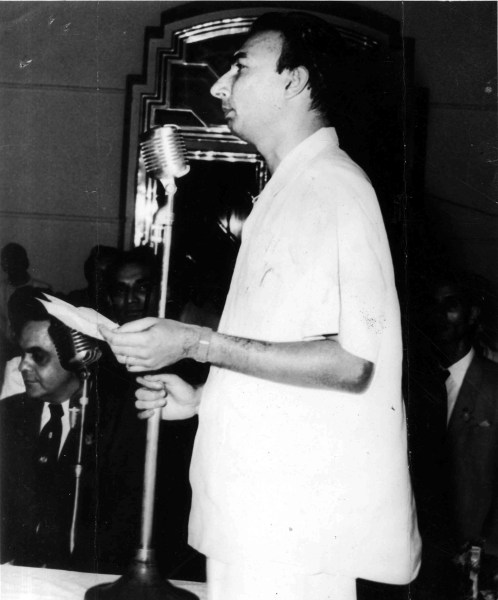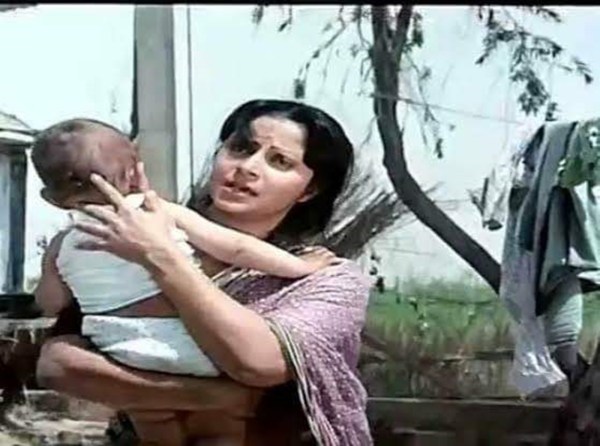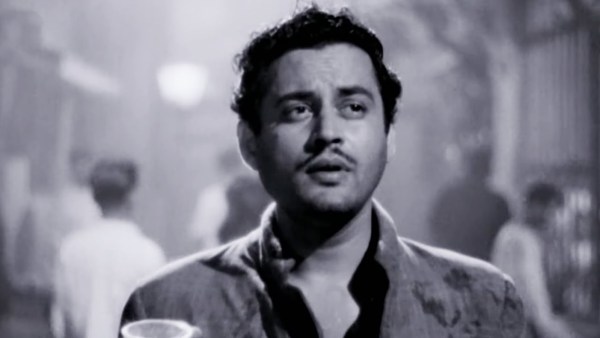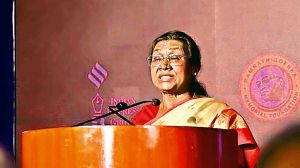The lyrics of this timeless, heart-wrenching song, belted out by Lata Mangeshkar, from the black-and-white film Sadhna, spoke to women of that era and continue to resonate with them, despite the film and song being six decades old. Sure, we can’t compare the condition of women from the ’50s and ’60 to that of today — we are living in a time where women are CEOs, heading boardrooms, flying planes, making important decisions at home and workplace, where terms such as ‘feminism’ and ‘women empowerment’ are casually thrown in every conversation — but has the situation of women, rather the society changed much? As I search for the answer to this rather complicated question, my mind keeps going back to the lyrics.

Sahir Ludhianvi, who wrote the song, was a vocal critic of patriarchy and feudalistic exploitation of women. He took a strong stance in Sadhna, starring Sunil Dutt and Vyjayanthimala, where he challenged societal norms by placing blame on men who objectified women, a perspective rarely voiced in the ’50s. Traditionally, the shame associated with sex work fell solely on the women involved, but he refused to accept that. “It is a coincidence that Sahir’s birthday falls on International Women’s Day. Few poets and lyricists have highlighted the exploitation of and injustice to women by a male-dominated society (as he did),” Farid Khan, poet and member of the group Urdu Caravan, said at an event organised by Progressive Writers’ Association (PWA).
Story continues below this ad
Indian Express Entertainment is now on WhatsApp Channels. Follow us for the latest news, interviews, reviews, photos and more.
In his verses, he could describe the essence of a woman like no other, but the true and unfiltered depiction of her pain and dire state made his work stand, turning him into a crusader of suffering women. Sahir, a luminary whose words transcended the boundaries of conventional poetry, emerged as a guiding light in the mid-20th century. Often celebrated as a harbinger of social change, he not only embraced the nuances of love, longing, and societal complexities but also stood as a beacon of hope for women living on the periphery, exploring feminist ideals through his profound and progressive lyrics and poems.
 Lyricist Sahir Ludhianvi on the set of film DHOOL KA PHOOL. (Photo: Express archive)
Lyricist Sahir Ludhianvi on the set of film DHOOL KA PHOOL. (Photo: Express archive)
Long before the words ‘feminism’ or ‘female gaze’ became buzzwords like they’re today, Sahir, not a pal do pal ka shayar — because his body of work remains timeless — became a powerful voice for women, exploring their struggles, emotions, and societal plights. His iconic nazm, later adapted into film songs, became a powerful tool for social commentary. They questioned the treatment of women in the flesh trade, challenging ingrained societal norms. But his concern went beyond societal issues. He explored the complexities of women’s inner lives, capturing their yearning for acceptance in love, their fight for justice, and the spectrum of emotions they navigate. Therefore, it doesn’t come across as a surprise that the man, who spoke for women and wrote about them so sensitively shared his birthday with International Women’s Day. Regarded as one of the greatest film lyricists and poets of 20th century India, Sahir was born Abdul Hayee on 8 March 1921, in Ludhiana, Punjab.
Sonakshi Sinha, who will be seen in Sanjay Leela Bhansanli’s Heeramandi: The Diamond Bazaar, praising her director, said, “The way he (Sanjay Leela Bhansali) portrays women on screen, nobody else can do that.” Over the past decade or so, the filmmaker has been praised for the ‘female gaze’ in his films and for depicting his conventionally looking female characters — from Mastani in Bajirao Mastani to Gangubai in Gangubai Kathiawadi, Padmavati and Mehrunisa in Padmaavat, Leela in Goliyon Ki Raasleela Ram-Leela — as ‘courageous’ and the one to break the mould. But what his films lack is that they forget to question society, mindsets, social vices and the patriarchy, the very reasons for the plight of these women. So if a filmmaker wants to make a film on the treatment of women and how they rise to the occasion to become their own ‘guardian angels’ and for other women around them, for instance, Alia Bhatt’s character in Gangubai Kathiawadi, they must study and observe, how Sahir didn’t mince his words while criticising the system that discriminates between man and a woman.
Story continues below this ad
In the past few years, the conversations around women helming films, equating to better, sensitive representation of the gender and female gaze in Indian cinema, have become profound. This brings me to my next question: What made Sahir, a man born in the pre-Independence era, so sensitive to women? The answer lies in his childhood experiences. Raised by a single mother, who struggled to make ends meet, Sahir’s experiences likely shaped his deep empathy for women. He firsthand witnessed the challenges they faced, especially those marginalised and forced into the flesh trade. His poems didn’t shy away from criticising the hypocrisy of those who upheld traditions while exploiting women. The song — “Tu Mere Saath Rahega Munne” — he penned for Trishul, was, in a way, an ode to his mother. Waheeda Rehman’s character, a lone mother, confronts numerous challenges in her journey to raise her son and her strife to lead a dignified life.
 Waheed Rehman in a still from the song Tu Mere Saath Rahega Munne. (Photo: Express Archives)
Waheed Rehman in a still from the song Tu Mere Saath Rahega Munne. (Photo: Express Archives)
Going by his verses, it is hard to deny that Sahir, who once dated Amrita Pritam, was filled with pain and emotion and was profound in his work. Noted lyricist Javed Akhtar, during Jashn-e-Rekhta festival, said, “Do you think a man (Sahir) who led a relaxed life, the one with money and comfort would name his book ‘Talkhiyan’ (bitterness)? It is not possible. His life was full of bitterness and sadness and it remained with him till his last days.” Driven by his pain and misery, he wrote to bring about a change. Through visits to Lahore’s brothels, he witnessed the plight of the women trapped there. This experience fuelled his poem “Chakley” (Brothels), later adapted for Guru Dutt’s Pyaasa, his verses serving as the muse for this cult film where Guru Dutt incorporated themes of social disparity and the unspoken, but powerful, love between a poet and a sex worker. Their bond transcends the biases of a society stratified by class. Even before India’s independence, the original nazm challenged those who preached societal morals, asking: “Where are the guardians of self-respect?” The raw emotion depicted in the poem and the film’s portrayal still evoke strong feelings in me.
“Yeh kooche yeh neelamghar dilkashi ke (these streets, these auction houses of allurement ),” the iconic song from Pyasa, sung by Mohammad Rafi, painfully encapsulates the emotions of the character played by Guru Dutt who underscores the struggles of sex workers living in dingy rooms of brothels. “I was so struck by this poem, written when he (Ludhianvi) was still in his teens and his courage in calling the fallen woman of the streets by the names of Havva, Yashodha and Zulekha, the sacred women of three major religions of the country!” Painter Bawarie, a friend of Sahir, told Hindustan Times.
 A still from ‘Yeh kooche yeh neelamghar dilkashike’ is sung by Mohammad Rafi. (Photo: Express Archives)
A still from ‘Yeh kooche yeh neelamghar dilkashike’ is sung by Mohammad Rafi. (Photo: Express Archives)
BR Chopra’s Insaf Ka Tarazu, featuring Raj Babbar and Zeenat Aman, was unconventional in ways more than one. Raj Babbar’s character Ramesh, a businessman sexually assaults Bharti, played by Zeenat. The accused is acquitted and the victim is blamed for being ‘loose’ because she was ‘modern,’ worked as a model and was friendly with Ramesh. But Bharati seeks revenge and kills her predator. Through the song, “Log aurat ko faqat jism samajh lete hain, rooh bhi hoti hai uss mein yeh kahan sochte hain (People see a woman only as a body. They forget that she has a soul too),” sung by Asha Bhosle, Sahir urges that a woman is beyond just her body and that roving eyes of men who look at her as a mere commodity, must respect her soul, too.
Story continues below this ad
Women represented in today’s films want a man, a lover on their own terms and aren’t afraid to speak about their desire, an unspoken theme in literature and films back then. Sahir was ahead of his time and almost paved the way for today’s progressive filmmakers and lyricists. In Devdas (1955), when Vyjayanthimala sang, “Jisse tu qabool kar le vo sada kahan se laaun, tere dil ko jo lubha le vo ada kahan se laaun, Main woh phool hun ke jisko gaya har koi masal ke, meri umar bah gayi hai mere aansuon mein dhal ke, jo bahaar ban ke barse vo ghata kahan se laaon (From where do I get that voice which is acceptable to you? Which blandishments do I use that are acceptable to you? I am that flower which everyone trampled on. My life has drowned in my tears. How do I become the clouds of hope for you?),” she urged that Devdas (Dilip Kumar) must love her the way she was and in the manner which she desired. It was perhaps one of the rare times when the heroine found her own voice in expressing her desires.
During a time when literature echoed traditional expectations for women, Sahir chose to be a whistleblower. His poems became powerful calls for liberation, giving voice to unspoken yearnings and silent struggles of women. While some of his earlier work may reflect traditional views, he wasn’t afraid to evolve. He challenged these notions too, capturing the nuances of women’s experiences and giving voice to their complexities. So while we call today’s literature and cinema progressive and applaud new-age writers and filmmakers for the change, it was actually Sahir who laid the foundation for this transformation in the years to come.




 Lyricist Sahir Ludhianvi on the set of film DHOOL KA PHOOL. (Photo: Express archive)
Lyricist Sahir Ludhianvi on the set of film DHOOL KA PHOOL. (Photo: Express archive) Waheed Rehman in a still from the song Tu Mere Saath Rahega Munne. (Photo: Express Archives)
Waheed Rehman in a still from the song Tu Mere Saath Rahega Munne. (Photo: Express Archives) A still from ‘Yeh kooche yeh neelamghar dilkashike’ is sung by Mohammad Rafi. (Photo: Express Archives)
A still from ‘Yeh kooche yeh neelamghar dilkashike’ is sung by Mohammad Rafi. (Photo: Express Archives)































